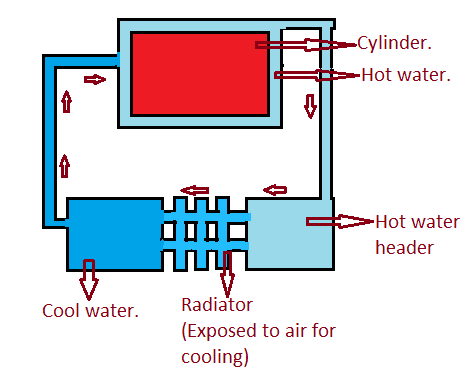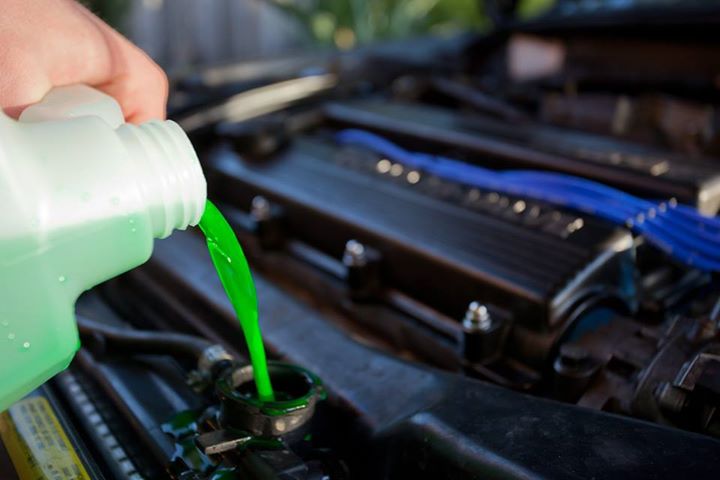Introduction: Have you ever wondered what goes on inside your car Fuel Injector Nozzles when you are driving? One of the most important components that keep your vehicle running is the fuel injector nozzle. It’s responsible for controlling the amount of fuel that is delivered from a vehicle’s fuel pump into the combustion chamber, helping to ensure that it burns evenly and efficiently. Read on to find out more about fuel injector nozzles and their functions.
What is Fuel Injector Nozzles?
Fuel injector nozzles are small devices that are used to atomize and spray fuel into the combustion chamber of an internal combustion engine. They are a crucial component of fuel injection systems, which are used in many modern vehicles to deliver fuel to the engine in a precise and controlled manner.
Fuel injector nozzles typically consist of a small valve that can be opened and closed by an electric or mechanical actuator, and a nozzle or tip that is used to break the fuel into small droplets. The nozzle tip can be designed in different ways to achieve different spray patterns, such as single or multi-hole, cone-shaped or fan-shaped. The spray pattern, droplet size, and the amount of fuel delivered, all affect the combustion efficiency, which in turn affects the engine performance and emissions.
When the fuel injector nozzle opens, fuel is delivered under high pressure, typically around 45-70 PSI, and is forced through the nozzle tip, where it is atomized into small droplets. These droplets are then injected into the combustion chamber of the engine, where they mix with air and are ignited by the spark plug, creating the combustion that powers the engine.
The injector nozzles are usually located near the intake valves in the engine’s cylinder head, and can be operated at different times during the engine cycle to provide the optimal fuel-to-air ratio for combustion. They are designed to withstand high temperatures and pressures, and need to be properly maintained to ensure they continue to deliver fuel effectively, without clogging or leakage.
Overall, the Fuel injector nozzles play a vital role in the efficient operation of fuel injection systems and the proper functioning of an internal combustion engine.
What are the types of fuel injector nozzles?
There are several types of fuel injector nozzles that can be used in fuel injection systems, each with their own unique design and characteristics. Some of the most common types include:
- Single-hole nozzles: These nozzles have a single small hole through which fuel is delivered. They produce a fine mist of fuel droplets and are typically used in low- to medium-power engines.
- Multi-hole nozzles: These nozzles have multiple small holes through which fuel is delivered. They produce a wider and more intense spray of fuel droplets and are typically used in high-power engines.
- Spray-cone nozzles: These nozzles are designed to produce a cone-shaped spray pattern of fuel droplets. They are typically used in diesel engines, as they help to improve the mixing of fuel and air, which can improve combustion efficiency.
- Fan-shaped nozzles: These nozzles are designed to produce a fan-shaped spray pattern of fuel droplets. They are typically used in gasoline engines, as they help to improve the distribution of fuel, which can improve combustion efficiency.
- Pintle nozzle: These nozzles have a small pin that can be moved axially by a solenoid actuator, which controls the fuel flow by the time of opening and closing the pintle. They are used to provide precise and fine control of the fuel delivery rate, as well as to prevent leakage and dripping when closed.
- Split-injector nozzles: These nozzles have multiple orifices, each dedicated to a specific engine cycle. They are commonly used in multi-cylinder engine and helps to precisely control fuel delivery to each cylinder.
The choice of fuel injector nozzle will depend on the specific application and the characteristics of the engine, such as power output, operating conditions and emission regulations. Each type has its own advantages and disadvantages, and the best option should be chosen by considering the specific requirement and design constraints of the engine.
What are the symptoms of defective Injector Nozzle?
A defective fuel injector nozzle can cause a variety of problems in an engine, here are some symptoms that may indicate that a fuel injector nozzle is not working properly:
- Poor engine performance: A clogged or malfunctioning fuel injector nozzle can cause a reduction in power and acceleration, as well as a decrease in fuel efficiency. This can lead to the engine running poorly, stalling or not starting at all.
- Misfires: A defective injector nozzle can cause misfires, which can cause the engine to shake or vibrate excessively. This can also lead to poor fuel economy, increased emissions, and damage to the catalytic converter.
- Rough idle: A malfunctioning fuel injector nozzle can cause the engine to idle poorly, leading to rough or uneven idling.
- Lean or Rich Air/Fuel Mixture: A malfunctioning fuel injector nozzle can result in an incorrect air/fuel ratio, which can lead to either a lean or rich air/fuel mixture. This can cause damage to the engine, as well as increased emissions.
- Fuel Leak: A leaking fuel injector nozzle can result in fuel leakage, which can cause an increased risk of fire, and can also damage other components in the engine.
- Check engine light: Many of these symptoms will trigger a diagnostic trouble code in the engine management system, and will turn on the check engine light.
It is important to note that some of these symptoms can also be caused by other problems, so it is important to have the engine properly diagnosed by a qualified mechanic or technician to determine the cause of the issue before attempting any repairs.
What are the two types of injector nozzles?
In terms of the design and function, there are two main types of injector nozzles used in fuel injection systems:
- Saturated injector nozzle: A saturated nozzle is a nozzle that is always open when the engine is running and the fuel pressure is applied. The fuel is always flowing through the nozzle. They are also known as constant-flow or conventional nozzles, and are relatively simple in design, usually having just a single hole. These types of nozzles are used in diesel engines, and the fuel pressure is provided by a high-pressure fuel pump.
- High-pressure injector nozzle: A high-pressure injector nozzle is a nozzle that is closed when the engine is not running and opened when the engine is running by the actuator. These types of nozzles are commonly used in gasoline engines and use a high-pressure fuel pump and a control unit to supply the fuel pressure, which is typically around 30-150Mpa. The high-pressure fuel is delivered to the nozzle tip by a solenoid valve or a piezoelectric actuator. This allows for precise control of fuel injection, which can lead to improved combustion efficiency, better fuel economy, and reduced emissions.
It’s worth mentioning that in recent years, new injector nozzle types have emerged with new fuel injection technologies, such as GDI, PFI, and others. They differ in the way they deliver the fuel and in their design, but the basic function of fuel atomization and spray is still the same.
How Fuel Injector Nozzles Work?
The nozzle is responsible for atomizing the fuel into tiny droplets before it enters the combustion chamber. This helps to promote a more uniform burn, allowing the engine to run more smoothly and efficiently. The nozzle also helps prevent any contamination from entering the engine, which can be caused by dirt or rust particles in the fuel system. This keeps your engine clean and running optimally. Additionally, some nozzles have an adjustable orifice, which allows for fine-tuning of the amount of fuel being injected into each cylinder.
Types Of Fuel Injector Nozzle
There are several different types of fuel injector nozzles available on the market today. Some common types include multi-port injection (MPI) nozzles, single point injection (SPI) nozzles, and sequential injection (SI) nozzles. MPI nozzles are used in vehicles with multiple cylinders, while SPI and SI nozzles are better suited for engines with fewer cylinders. Additionally, some newer vehicles feature direct injection (DI) systems that use a high-pressure pump to deliver a misted spray of fuel directly into each cylinder.
Maintenance Of Fuel Injectors?
It’s important to regularly inspect your vehicle’s fuel injectors to ensure they are clean and free from any debris or corrosion buildup. You should also check them periodically for any signs of wear or damage, as this can cause increased levels of emissions as well as poor engine performance due to reduced efficiency of atomization or blocked passageways in the nozzle itself. Furthermore, clogged filters should be replaced at regular intervals as well; most manufacturers recommend doing so every 20-30 thousand miles depending on usage level and geographic location.
Conclusion:
Fuel injector nozzles play an important role in your vehicle’s operation by controlling how much fuel is injected into its combustion chamber. By understanding how these components work and taking proper care of them through regular maintenance checks, you can ensure that your vehicle will continue running smoothly for many years to come!


